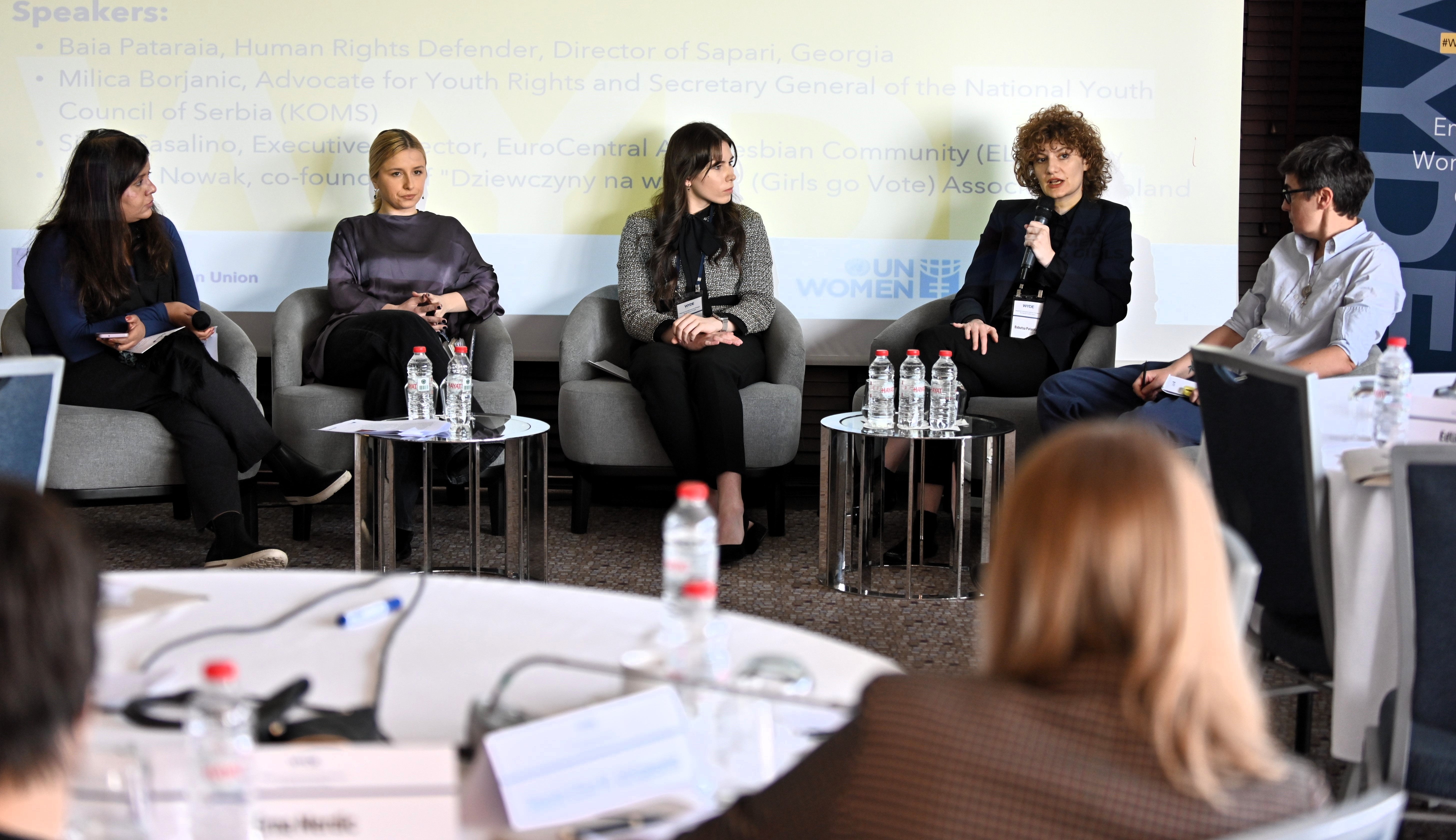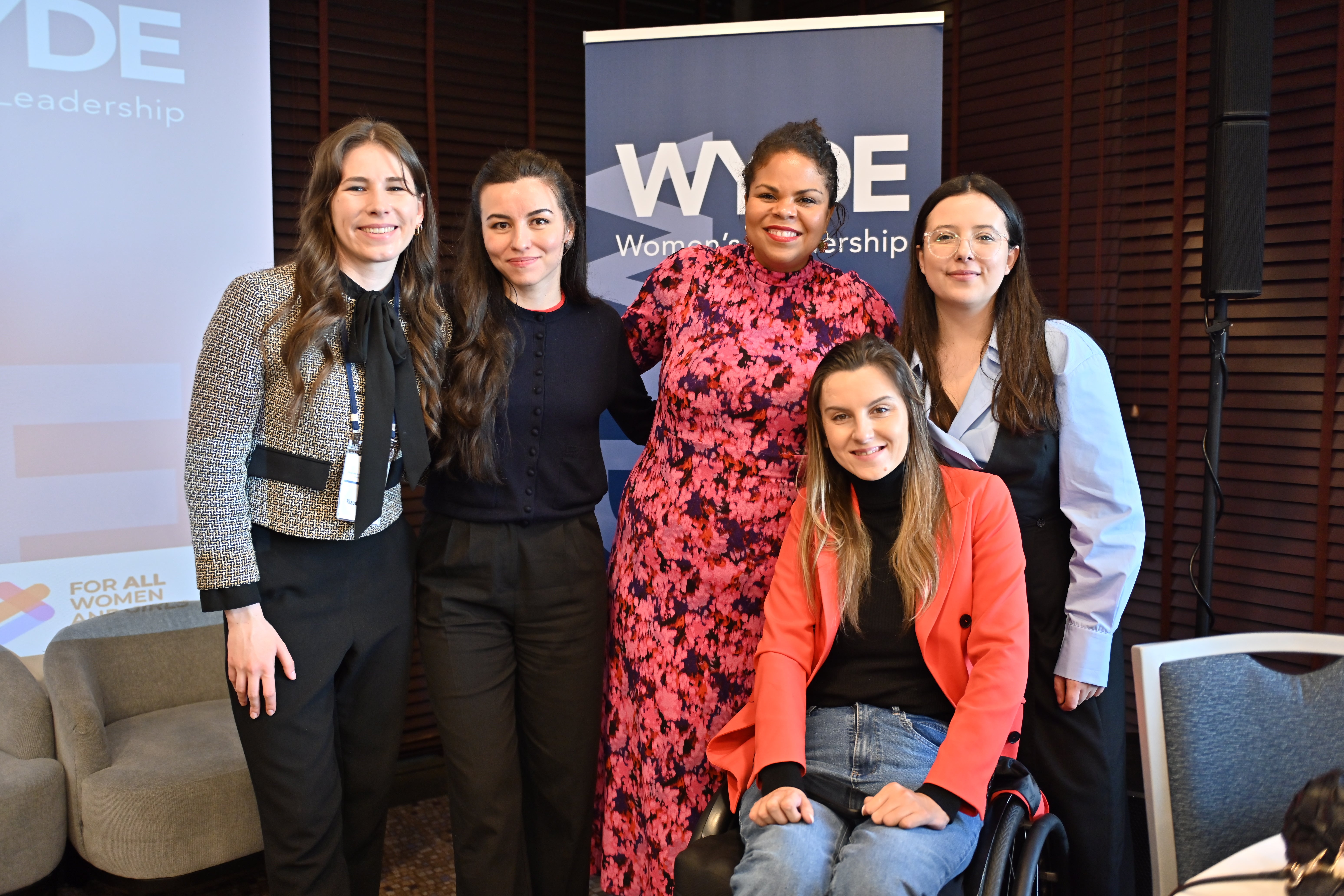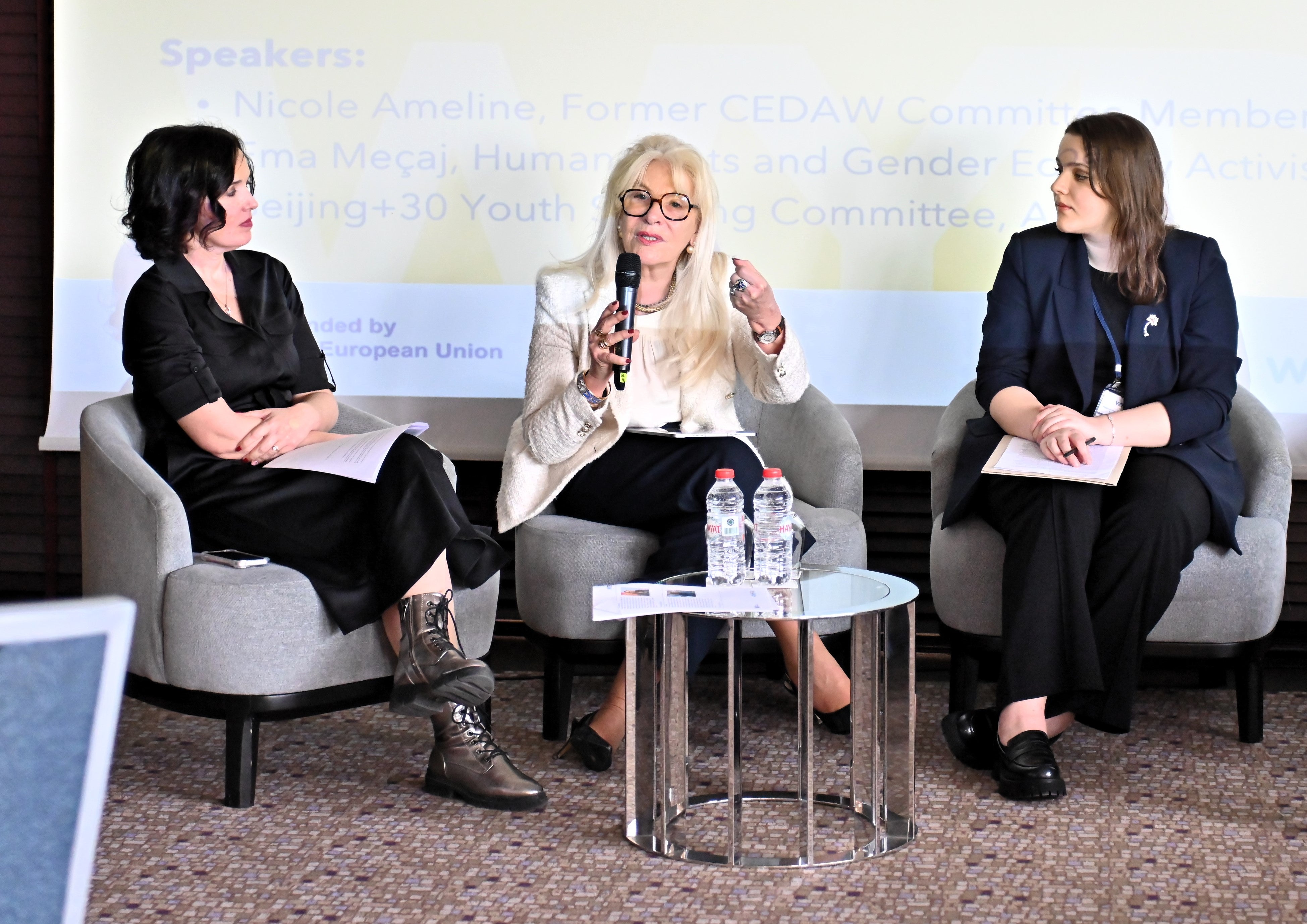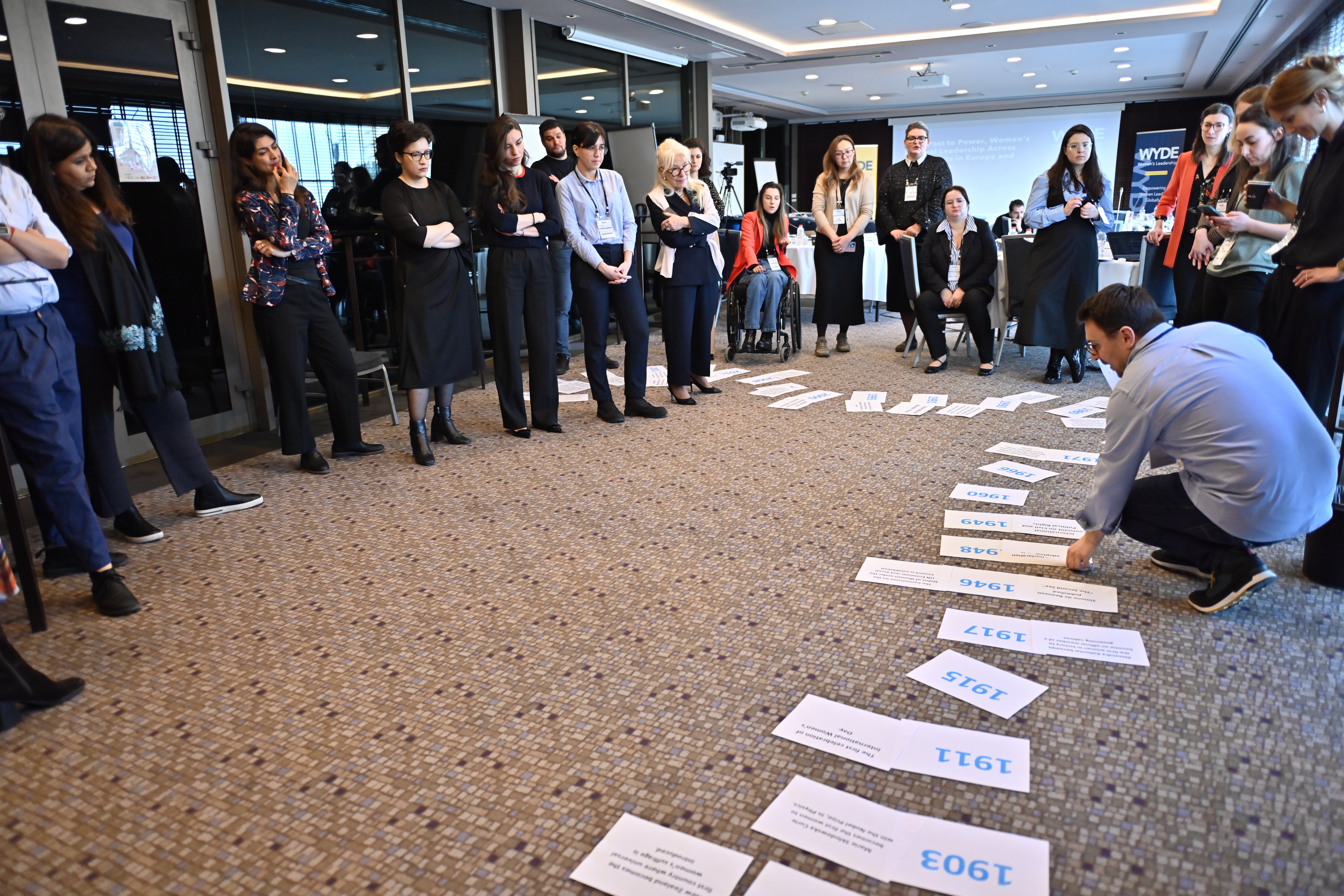While some progress has been made over the past decades, the numbers tell a sobering story. In the UNECE region, women’s representation in national legislatures has increased slightly to an average of 31.6 percent—still far below the levels needed for substantive equality and true influence. Many countries continue to grapple with stagnant or even regressing figures, and glass ceilings persist in the highest echelons of power. According to the 2025 edition of the IPU–UN Women “Women in politics” map, men outnumber women by more than three times in executive and legislative positions, with Europe remaining the region with the highest number of women-led countries (only 12 women Heads of State/Government)1. While the proportion of women in parliament has increased fractionally by 0.3 percentage points to 27.2 per cent compared to a year ago, in government positions it has declined by 0.4 percentage points. Moreover, social norms and gender biases directly impact the allocation of ministerial portfolios, with women still primarily being assigned to head policy areas concerning gender equality, human rights, and social affairs. Additionally, shrinking civic space and a growing pushback against women’s leadership as well as women’s rights organizations and civil society organizations add further urgency to the cause.
“The rise of authoritarianism worldwide poses greater threats to women's security. Without democracy, women cannot truly thrive or reach their full potential” reminded Babutsa Pataraia, a leading feminist activist and human rights lawyer from Georgia. She further spoke to the challenges and the resilience of those working to overcome them in an era where “truth and data no longer suffice to effectively address challenges”.

From left to right: Jeevika Shiv (UN Women), Milica Borjanovic (National Youth Council, Serbia), Klaudia Nowak (Girls Go Vote, Poland), Babutsa Pataraia (Sapari, Georgia), Silvia Casalino (EL*C, Italy). Photo: UN Women
The Regional Convening provided a vibrant forum for intergenerational exchange with intersectionality at its heart. Senior women officeholders, experienced activists representing the disability rights movement and LBTI communities, and emerging young leaders came together to share insights, embrace intersectional perspectives and forge new alliances. Youth Activist and Member of UN Women's Beijing+30 Youth Steering Committee Ema Meçaj from Albania reminded “With just five years left to achieve the 2030 Agenda, gender equality should be a priority for all. The world cannot afford regression or stagnation, thus the time to act and turn commitments into actions is now!”. Renate Adriaansens, National Gender Youth Activist from the Netherlands reinforced the urgency: “Advancing women’s political participation needs true inclusivity, not just in what we say - but in everything we do.”

Klaudia Nowak, Nushofarin Noziri (Tajikistan), Fatim Diarra (Finland), Milica Knecevic (Serbia), Valeriia Pustovit (Ukraine). Photo : UN Women
In an atmosphere charged with hope and determination, participants revisited lessons learned from decades of struggle, celebrated past achievements, shared personal stories of challenges and successes and mapped out forward-looking strategies. Exploring the long tradition of women’s leadership globally and in the region, participants identified how to leverage these inspirational stories and messages for social norms change. Discussions ranged from reflecting on the transformative impact of the Beijing Platform for Action to exploring how legal frameworks and special measures can accelerate progress. This unique blend of seasoned politicians and youth perspectives sparked a renewed drive to dismantle the narratives and social norms that continue to constrain women’s political participation.
Former Minister in France and former CEDAW Committee Member, Nicole Ameline explained: “Across the world, women are the driving force behind peace and sustainable development. Yet, without a systemic approach, we lack the global stability and critical mass of progressive women needed to drive true transformation and strategic change. Society cannot thrive with only half of humanity empowered. However today, the newly adopted CEDAW General Recommendation n°40 creates the paradigm shift which is crucially needed”. As further highlighted by Ameline, this General Recommendation provides a ‘parity’ roadmap for achieving equal and inclusive representation of women in decision-making systems, which includes among others addressing structural barriers, but also tackling norms, gender stereotypes and violence against women in politics, all of which are important components of the WYDE Women’s Leadership initiative.

Rachel Weston Eschenbacher (UN Women), Nicole Ameline (France), Ema Mecaj (Albania). Photo: UN Women
Participants not only shared their personal journeys and professional experiences but also challenged one another to think boldly about the future of women’s leadership and about effective approaches to counter the narratives which are being widely circulated through social media. There was a consensus that a collaborative, intergenerational approach is key to breaking down the barriers that have hindered progress for far too long and that activists and governments must urgently rethink how to efficiently address social norms. The convening also fostered moments of connection, networking and empowerment that allowed genuine coalition building. In addition, the role of men as partners and allies was highlighted: “To achieve gender parity, we need male politicians on board. Only if they own our struggle as their own is true gender transformation possible.” believes Saša Gavrić, Gender Advisor with the Office for Democratic Institutions and Human Rights (ODIHR) in OSCE.

Participants engaging in the “River of Life” activity, re-creating a historical timeline highlighting and acknowledging the contributions of women who have advanced democracy, rights, and gender equality in the world. Photo: UN Women
This Regional Convening is the first step in a sustained effort to reimagine and reinvigorate women’s political leadership across Europe and Central Asia. By creating an intergenerational platform for dialogue, UN Women is not only amplifying the voices of women at every stage of their journey but also laying the foundation for a future in which every woman has the opportunity to lead. The inspiring discussions and shared commitments from this event are set to inform ongoing global advocacy efforts under the WYDE | Women’s Leadership initiative as well as future intergenerational dialogues to take place in other regions, which will eventually bring us all closer to a world where gender equality in political and public life is fully realized.
Funded by the European Union for a period of three years, WYDE | Women’s Leadership leverages collective action, partnerships, coordination, knowledge, and resources at global level to advance women’s political participation and decision-making through social norms change, networking and global advocacy. WYDE | Women’s Leadership is implemented by UN Women (lead partner), the International Institute for Democracy and Electoral Assistance (International IDEA), the Inter-Parliamentary Union (IPU) and United Cities and Local Governments (UCLG) and is part of the Women and Youth Democratic Engagement initiative (WYDE), powered by the European Union, that seeks to empower and strengthen the rights, and participation in public and political life of youth and women as key actors of development and change. The initiative promotes political pluralism and the inclusiveness of democratic processes.
1 Data s of 1 January 2025 : Bosnia & Herzegovina, Denmark, Greece, Iceland, Italy, Lativa, Malta, North Macedonia, Republic of Moldova, San Marino, Slovenia, Switzerland. More info: https://www.unwomen.org/sites/default/files/2025-03/women-in-politics-2025-en.pdf

